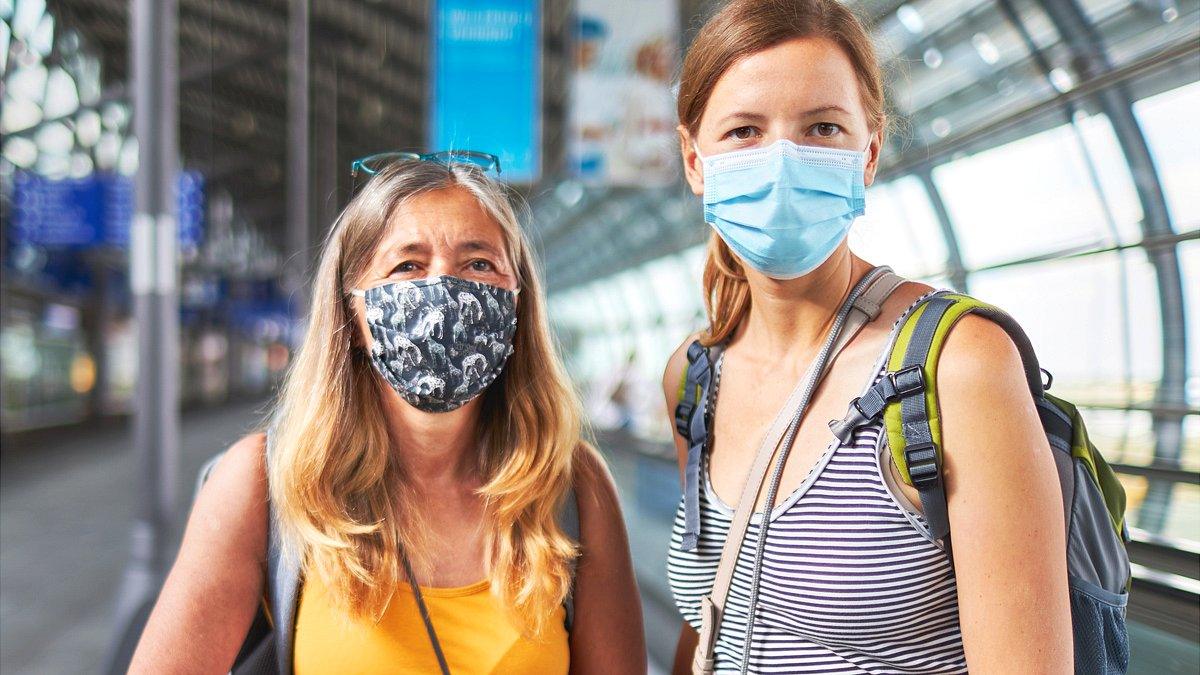Coronavirus: Living in an empty Korean boarding school
- Published
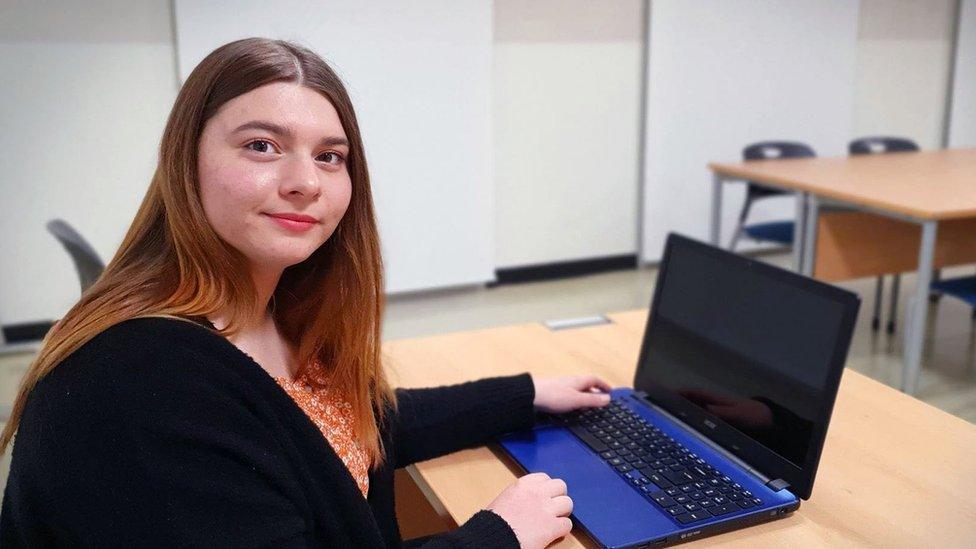
Alice Bate graduated from Oxford University last year, and was looking forward to travelling Asia whilst teaching in South Korea
A young English woman has described her "eerie" life living in a virtually deserted South Korean boarding school, after all the students were sent home because of coronavirus.
Alice Bate from Norfolk has been working as a boarding assistant on Jeju Island since September.
The South Korean government closed all schools in February and since then her classes have been taught online.
"Usually a school site is so noisy, now the campus is deathly quiet," she said.
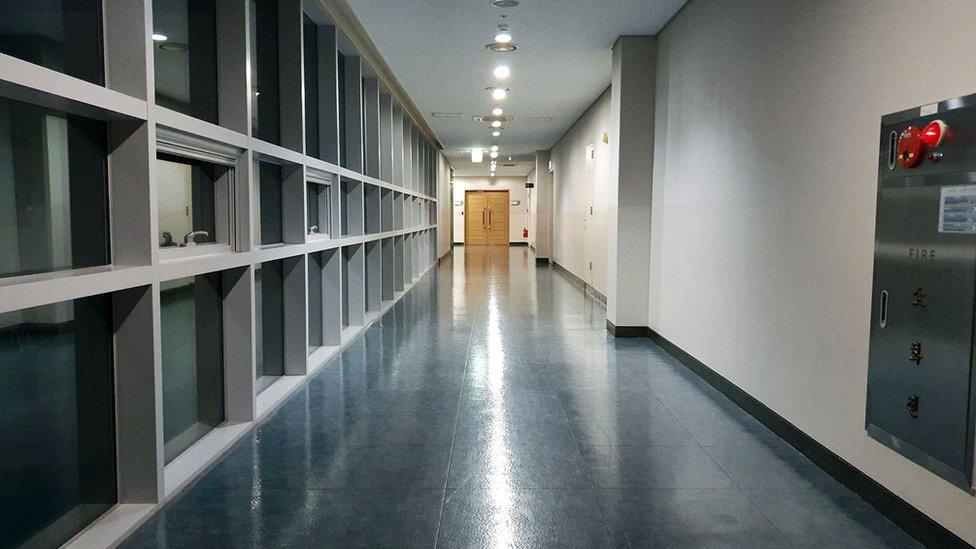
She said the "deathly quiet" campus was eerily empty without students
Ms Bate is one of a group of 15 UK graduates with little choice but to stay on the island, with most South Korean flights suspended, external.
Her accommodation used to be on a busy corridor full of students but she said the nights now seemed eerily empty.
The North London Collegiate School is usually home to about 1,200 pupils but currently only houses about 40 staff and their families, with lessons delivered from empty classrooms.
"I'm still working, it just looks very different without any students here to teach," Ms Bate said.
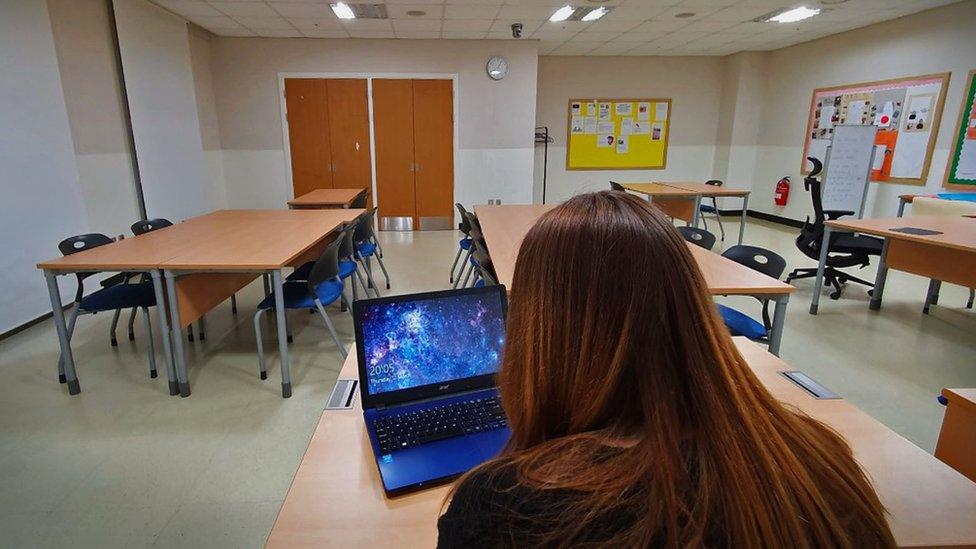
Ms Bate said her work normally was a very "social" job
Measures began after Chinese New Year in January, when those returning from China were quarantined just outside the school.
Then began regular temperature checks morning and night, and on anyone entering or leaving the campus.
Nearly 20,000 people are being tested every day for coronavirus in South Korea, more people per capita than anywhere else in the world.
"It's a strange thing, in that you don't want to over exaggerate the severity of the situation," said Ms Bate.
"On the one hand it's just normal life but, on the other, the children are scared.
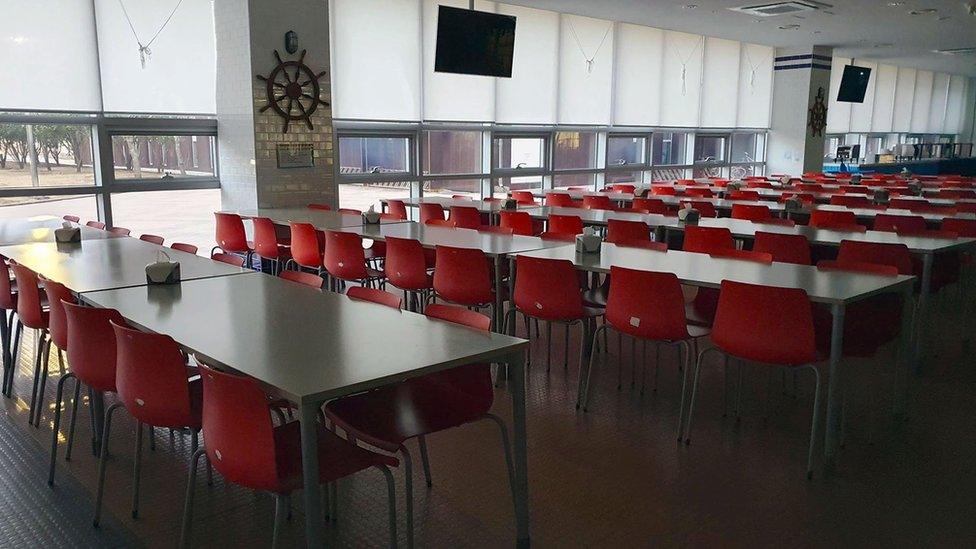
Restrictions on students were already in place before the government closed schools
"If someone had said that all schools would close back in January, I would have thought they were making it up.
"How can a country close all their schools? But then it happens, and you adapt."
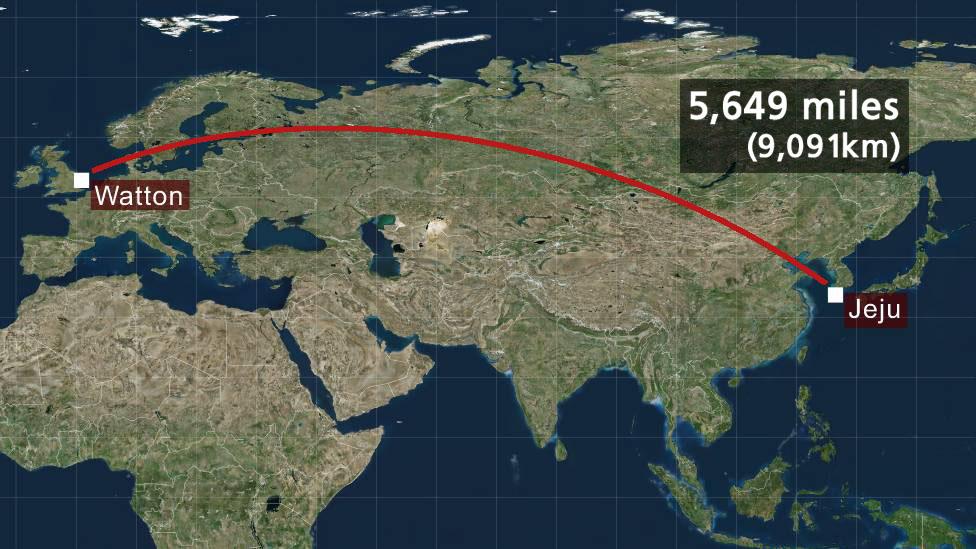
A flight from the island of Jeju to Alice's home in Watton, Norfolk, would take more than 15 hours, and even then she would face a period in quarantine
The school is thousands of miles from her home in Watton, Norfolk.
"At times I've felt slightly scared, but I don't want to worry everyone at home.
"It's reassuring that South Korea has been dealing with the outbreak really well," she said.
The school hopes to reopen in April but in the meantime Ms Bate and her colleagues have tried to continue business as usual using online teaching, live presentations and podcasts.
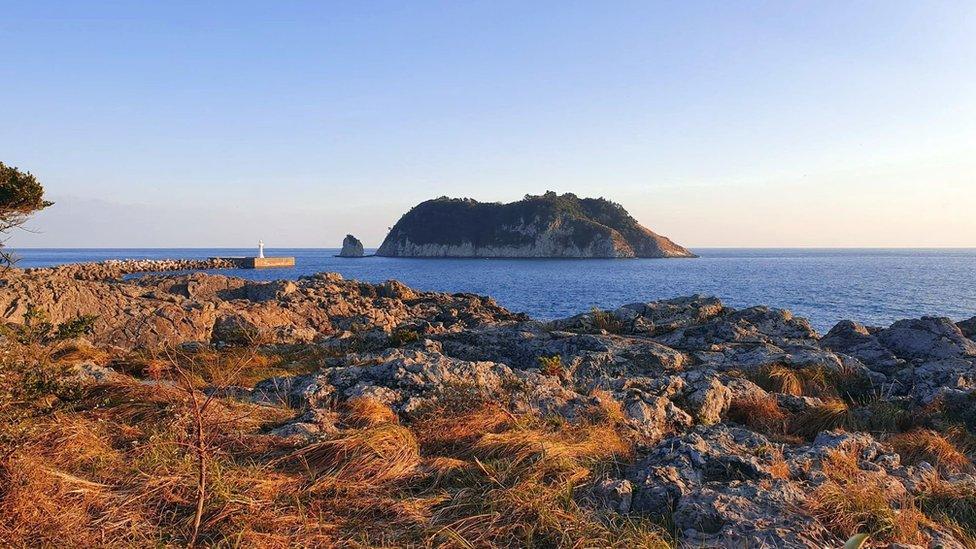
"There are worse places to be stuck," Ms Bate said
Ms Bate said locals were carrying on as normal and she was using the opportunity to explore the countryside instead of the cities.
"The lack of tourists changes the atmosphere a lot," she said.
"Really photogenic areas that are usually busy are completely empty."
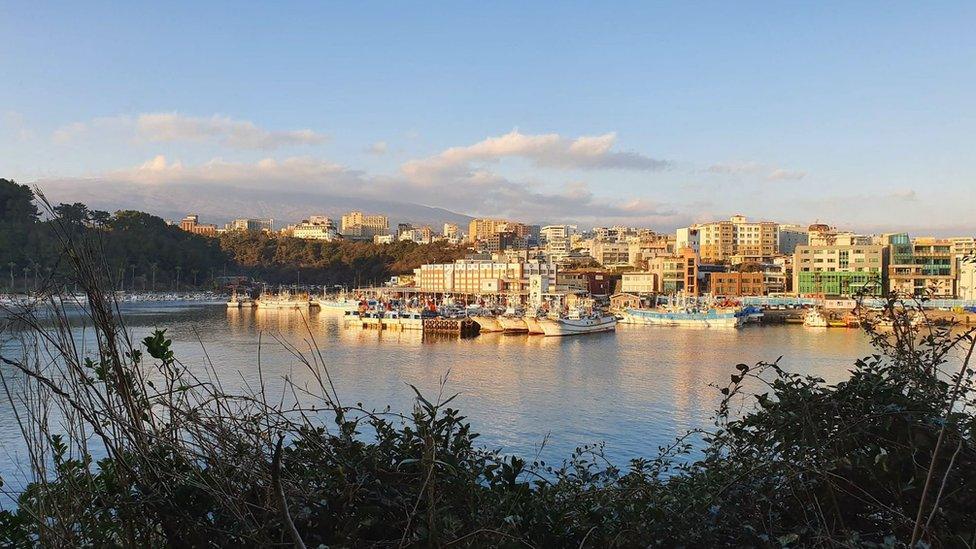
Every year about 15 million tourists visit Jeju Island, according to the Korea Times
Now she has been watching from afar as a situation similar to her reality for the past two months unfolds in the UK.
"After months of friends and family asking me what's going on, now it's me asking them," she said.
Ms Bate said she and her colleagues have coped well with the outbreak but she was conscious of the wider risk to the population.
"My main fear is infecting someone who isn't able to recover.
"It's about being responsible socially as much as anything else."

EASY STEPS: How to keep safe
A SIMPLE GUIDE: What are the symptoms?
GETTING READY: How prepared is the UK?
MAPS AND CHARTS: Visual guide to the outbreak
TRAVEL PLANS: What are your rights?

- Published11 March 2020

- Published2 March 2020

- Published12 March 2020
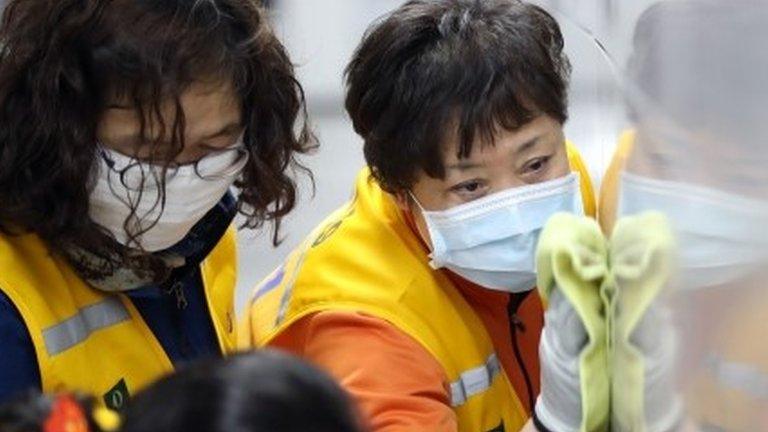
- Published26 February 2020

- Published29 November 2021
